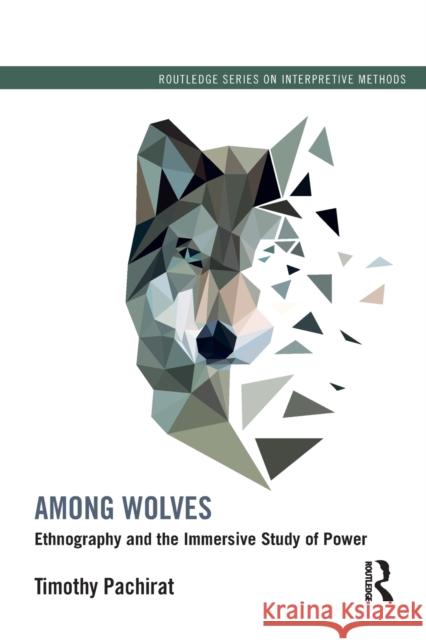Among Wolves: Ethnography and the Immersive Study of Power » książka
Among Wolves: Ethnography and the Immersive Study of Power
ISBN-13: 9780415528986 / Angielski / Miękka / 2015 / 174 str.
Among Wolves: Ethnography and the Immersive Study of Power
ISBN-13: 9780415528986 / Angielski / Miękka / 2015 / 174 str.
(netto: 195,86 VAT: 5%)
Najniższa cena z 30 dni: 186,33
ok. 22 dni roboczych.
Darmowa dostawa!
This book provides a benchmark treatise on the relationship between ethnography and interpretive approaches to research in the social sciences by accomplishing four specific objectives. First, it situates ethnography as a research method within a broader field of methodologies, contrasting ethnography conducted and written within an interpretive methodology against ethnography conducted and written within a positivist methodology. Second, it maps the range of approaches to ethnography within an interpretive methodology with a specific emphasis on the stances interpretive ethnographies implicitly or explicitly take on issues of truth and power. Third, it provides readers of interpretive ethnography with major evaluative criteria while simultaneously offering practitioners of interpretive ethnography guidelines for conducting and writing interpretive ethnography. And fourth, it draws on the unique strengths of interpretive ethnography to advance a series of provocations and questions about broader tendencies in mainstream social science research.
In contrast to other treatments of ethnography that either ignore or conflate the relationship between ethnography as a research method and broader interpretive and/or positivist methodologies, Pachirat explicitly emphasizes the distinction between method and methodology in order to underscore the advantages of conducting ethnography within an interpretive framework. Rather than drawing inspiration primarily from abstract philosophical literature, Ethnography and Interpretation relies throughout on discussions of actual, exemplary ethnographies in the social sciences to illustrate and animate its arguments and propositions. This concise volume will be valuable reading for teachers, students, and practitioners of ethnographic research across the social sciences.











